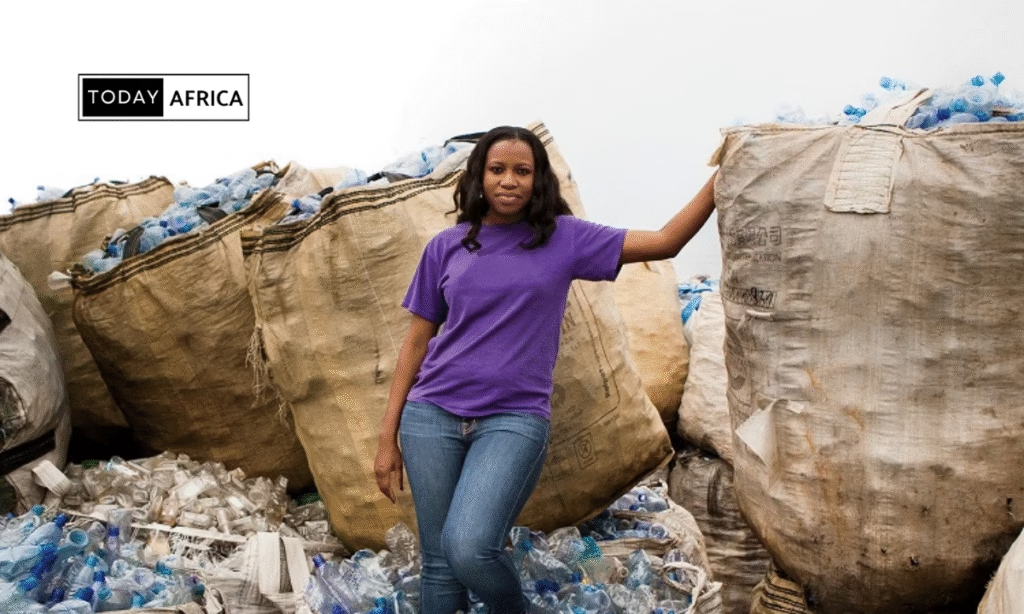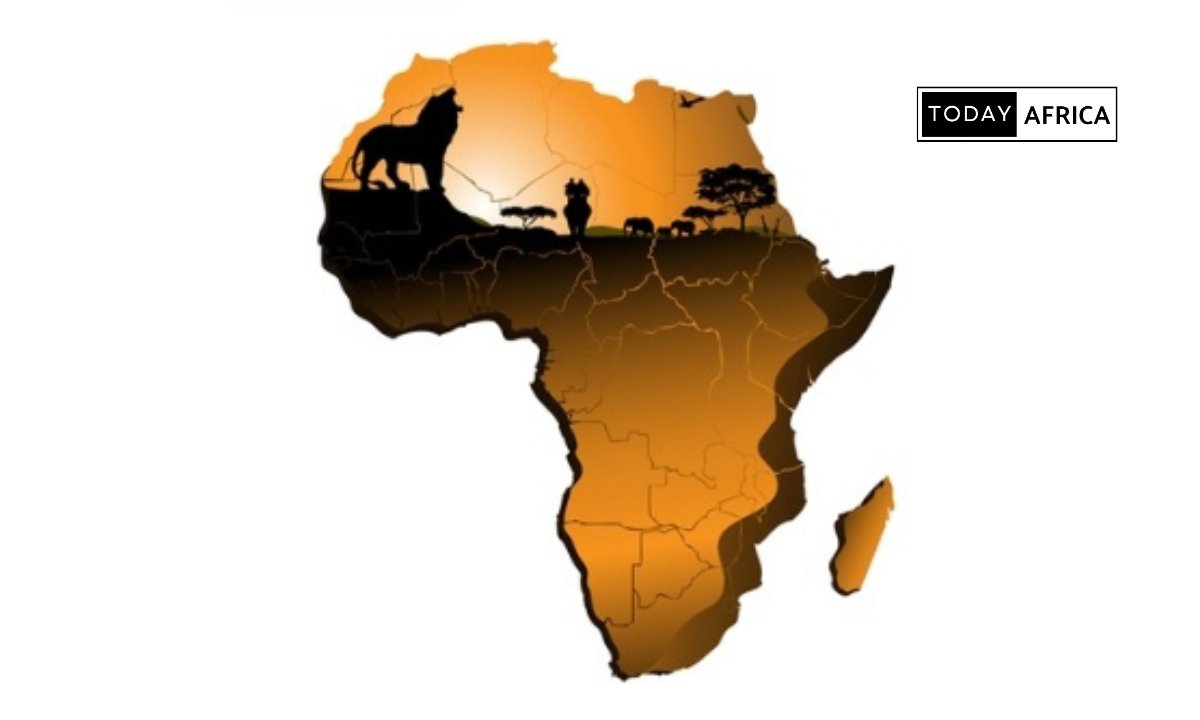With 32 million tonnes of solid waste generated every year, including about 2.5 million tonnes of plastic, Nigeria has a huge raw material base for recycling.
Currently, only roughly 30% of this waste is even collected. That means tons of paper, plastic, and metal are clogging landfills and waterways, while savvy entrepreneurs see enormous potential in turning that trash back into cash.
A recycling business in Nigeria is not only an eco-friendly venture but a lucrative green enterprise in a growing circular economy.
Why Recycling Matters in Nigeria
Recycling in Nigeria is both economically and environmentally strategic. It creates jobs (waste pickers, factory workers, drivers, etc.) and generates value from discarded materials, while easing pollution.
For example, Lagos alone produces some 13,000–14,000 tonnes of waste per day, and the Lagos Waste Management Authority (LAWMA) is now aiming to recycle 90% of it.
The LAWMA notes “waste is actually not waste, but money,” since many people already earn a living by selling recyclables. Nationwide, the government and UN estimate Nigeria’s green economy at ~$250 billion, with plastic recycling alone a $40 billion market.
Government policy is moving in the same direction. In 2021, Nigeria launched a National Policy on Plastic Waste Management, explicitly encouraging the reuse and recycling of plastics.
In mid-2024, the Federal government announced it would ban many single-use plastics (straws, bottles, sachets, etc.) by January 2025. State governments are also active – Lagos is building material-recovery facilities at old landfills and partnering with startups to recycle plastics into fuel.
All of this translates into high demand for recycling entrepreneurs. Manufacturers increasingly seek recycled inputs (for example, tissue and packaging makers rely on scrap paper, and private investment is flowing: for instance, Nigerian recyclers Terra Alloy (aluminum) raised €9 million in 2024.
Plastic recycling business
A plastic recycling business typically works like this: collectors gather and sort plastic waste (often classified by type and color), then wash and shred it. Washed plastic is melted and extruded into pellets or flakes for sale.
For example, Kaltani, a Nigerian startup, collects plastic bottles and processes them into hot-washed PET flakes and PP/PE pellets for sale to packaging manufacturers. Kaltani’s technology even uses geo-mapping and data analytics to optimize collection routes.
Even smaller-scale plastic recyclers can tap local demand. Universities, offices and communities often have sizeable plastic waste that can be sold to recyclers. For startup plastic recycling, essential equipment includes shredders and crushers, washing/drying lines, and pelletizers or extruders.
Recycled plastic is in demand – companies making soap containers, detergent bottles, and even polyester fiber will pay for clean, processed plastic.
Things to know in plastic recycling business
- Market: Ubiquitous waste (bottles, sachets, packaging). Customers include packaging firms, textile makers (for PET fiber), and industrial users.
- Startup costs: Varies by scale. A small collection-sorting business could start under ₦1 million; a full processing plant can be tens of millions (Guardian cites ~₦16–20 million for a mid-size plant).
- Equipment: Shredders, conveyors, washing and filtration equipment, extruders/pelletizers, and basic tools (scales, bundles, bags).
- Process: Collect > clean > shred > extrude > bag/palletize. Optionally partner with firms (like Scrapays) for logistics or sales.
- Challenges: Plastic sorting can be labor-intensive (different polymers). Clean water is needed for washing. But Nigeria’s growing ban on single-use plastics also means less competition from virgin plastic and more demand for recycled alternatives.
Read Also: The Role of Women in Green Energy in Africa This Year
Paper recycling business
Nigeria’s paper recycling sector is less publicized, but it’s very promising. Every day, offices, schools, and markets throw out tons of waste paper – receipts, notebooks, cardboard, and printing paper.
Recycling paper conserves forests and uses far less energy and water than making new paper. There is already strong industrial demand: for example, Bel Papyrus Ltd., a leading tissue maker, uses about 72,000 tonnes of waste paper each year.
Starting a paper recycling business involves collecting scrap paper, pulping it, then re-forming it into new sheets. Key steps:
- Collection & sorting: Gather old books, office paper, cardboard etc. Segregate by grade (newsprint, white office paper, mixed paper, cardboard). Higher-grade (clean) paper fetches better prices.
- Pulping process: At a mini-factory, sorted paper is blended with water and chemicals to create pulp. The pulp is screened to remove ink and contaminants (sometimes through de-inking).
- Drying & cutting: The cleaned pulp is pressed onto screens to form sheets, then dried and cut. A simple operation might involve a pulper, a decker (press), and a dryer.
Things to know in paper recycling business
- Market: Packaging companies, tissue and sanitary paper makers, and printers need recycled pulp. The demand is huge (our cites: Bel Papyrus uses 72,000 MT/yr).
- Startup costs: Lower than plastic; you can begin with just a collection network and storage space. A simple pulping setup might cost a few million for machines.
- Equipment: Balers, pulpers, screening machines, deckers/presses, and dryers. For very low-tech starts, even hand pulping and drying on flat beds is possible in small batches.
- Process: Collect > sort > pulp > dry > sell sheets or rolls. Even selling raw pulp to paper converters is an option.
- Benefits: Saves trees (one ton of recycled paper saves ~17 trees) and draws on abundant office/school waste. Also, government and NGOs often encourage paper recycling to conserve forests.
Metal recycling business
Metal scrap is an underrated gold mine in Nigeria. Almost every major city has a “condemn condemn” market of discarded steel, iron, and aluminum.
A recent report notes that over 95% of Nigeria’s steel production comes from recycled scrap, because domestic steel plants rely heavily on metal scrap as raw material. This means there’s a ready market – factories and metalcasters are eager buyers.
Ferrous scrap (iron, steel) comes from old vehicles, machinery, construction materials, appliances, roofing, etc. Non-ferrous scrap like aluminum and copper is found in cans, cables, radiators, and more.
Prices for aluminum and copper scraps are high. For example, Terra Alloy, an aluminum recycling plant, recently raised €9 million to expand in Ogun State.
Things to know in metal recycling business
- Market: Virtually guaranteed. Local steelmakers (e.g. Ajaokuta, Katsina Steel) and foundries rely on scrap. Aluminum can be sold to beverage-can recyclers or sent to Terra Alloy’s plant. Even copper wiring fetches high prices.
- Startup costs: Equipment-heavy if you build a yard (forklifts, shears, cranes), but many scrap dealers start with just a plot of land and manual tools. At minimum, budget for a scale, basic sorting tools (magnets, cutters), and transportation (trucks or pickups).
- Equipment: Heavy-duty gear (shears, balers, forklifts) for a big plant; smaller operations use hydraulic presses and hand tools. Safety gear is crucial (gloves, helmets) – scrap metal can be dangerous.
- Process: Collect > sort (iron vs non-ferrous) > cut/bale > sell. Some businesses add value by processing scrap into standard-size blocks or rods.
- Profitability: Very high. Investigative reports found that casual scrap collectors in Nigeria earn ₦200,000/month (over $250) on average. Because most of the domestic steel industry is downstream (making sheets, pipes, etc.) using scrap, scrap dealers have strong bargaining power.
Read Also: Top 100 Startup Accelerators & Incubators in the World
How to Start Your Recycling Business in Nigeria

Getting into recycling requires careful planning. Here are the main steps, applicable whether you focus on plastic, paper or metal (or combine them):
Market analysis
Research the local supply and demand. Ask: What waste is most abundant around you? Are local businesses discarding lots of plastic or paper?
Who currently recycles it, and who buys the recyclables? (Scrapays recommends surveying existing collectors and buyers with questions like “Where do they source waste? What prices do they pay/sell?”).
Identify gaps – for example, maybe no one is collecting plastic film in your area, or paper collectors don’t serve your neighborhood. Also study competition (other recyclers or informal collectors) and customers (factories, construction companies, schools).
Business plan
Draft a clear plan outlining your goals, services, and finances. Include sections on your business model (collection-based, processing plant, hauling service), startup costs, pricing strategy, and marketing (how you will attract waste suppliers and buyers).
Be realistic – include projections for waste volumes and revenues. If you need funding, a solid business plan will convince banks or investors to back you.
Startup costs & funding
Estimate your initial investment. This typically covers collection equipment (containers, scales, wheelbarrows), transport (motorcycle, truck, or tricycle), land/warehouse rent (storage), and processing machines (for cleaning/shredding/baling).
For example, a small plastic or paper sorting center might cost a few million Naira; a larger plant with heavy machinery can be ₦10 – 20+ million. Don’t forget operational costs for the first 6–12 months (salaries, utilities, fuel).
To cover these, use a mix of personal savings, loans, or grants. Microfinance, cooperative societies, and even government SME loans can help.
Some recycling startups have attracted donor funding – e.g., Unilever gave $2M to WeCyclers, and USAID/Coca-Cola gave $4M to a tech recycling project – so look for such opportunities.
Register and license
Legally register your company with the Corporate Affairs Commission (CAC). Then obtain any necessary environmental permits.
In Nigeria, the NESREA (environmental agency) issues Waste Management Permits for businesses handling large waste volumes. Contact NESREA or state environmental agencies to apply.
If you deal with electronic scrap (e-waste), a special Electronic Waste (UEEE) permit is required. Also, check with your local government – e.g., Lagos State requires waste collectors to register with LAWMA. Compliance is important to avoid fines and to assure clients you are legitimate.
Equipment and setup
Acquire the essential equipment. Basics include weighing scales, heavy-duty sacks or containers (jumbo bags), binding ropes, and wheelbarrows – even before you buy big machines.
For processing:
- Plastic: shredders, wash tanks, dryers, and plastic extruders (for pellets).
- Paper: pulping machines, mold screens, de-inking screens, drying lines (or simpler setups like flatbed drying for small batches).
- Metals: balers/shears, industrial magnets, metal cutters or torches, forklifts/trailers for heavy loads.
You may start with second-hand or rented equipment to save costs. We advise starting with just essential tools and upgrading as profits come in.
Choose a secure location with space for sorting and storage – preferably near your waste sources (e.g., near markets or industrial zones) to minimize transport.
Operations & logistics
Plan how you will collect and transport recyclables. Options include: hiring or contracting waste pickers, placing collection bins in neighborhoods, partnering with community associations, or even door-to-door collection for a fee.
Set up a sorting station where materials are separated by type/quality. For bulk collection, use tricycles or mini-trucks. For delivery to buyers, you might need larger trucks (or partner with a haulage company).
Factor in transport routes and schedules. Efficient logistics are vital – delays can cause waste to spoil (e.g., paper mildew) or incur penalties. Once collected and processed, the final step is selling your recycled product.
Establish relationships with manufacturers (e.g., plastics companies, paper mills, steel mills) who will buy your output. Alternatively, connect with exporters of scrap materials. Invoices, receipts, and proper weighing records will build trust.
Also, keep in mind seasonal or price fluctuations – e.g., metal prices can vary, so locking in contracts can stabilize income.
Staffing
Initially you may run the operation yourself or with a small team. Common roles: collection agents/collectors, sorters, and at least one person to handle records and sales.
As you grow, you might hire drivers, machine operators, and accountants. Consider commission-based pay for collection agents (they earn per kg of waste they bring) to incentivize them.
Scaling, Funding, and Partnerships
Diversify materials
If you started with one material (say, plastics), consider adding paper or metal recycling to tap new revenue streams. Companies like Scrapays demonstrate this – they enable agents to collect any scrap (metal, paper, plastic) and sell it online.
Invest in technology
To scale, invest in more advanced equipment. For example, a plastic recycler could add a PET flake plant or a pelletizing line to serve industrial buyers. Metal recyclers might install magnetic separators or an induction furnace. Also, use mobile apps or digital records to track collections and payments (Orange Strategy used a mobile app to coordinate waste pickup.
Secure funding
Larger expansions often require capital. Traditional bank loans are an option (you’ll need collateral and a strong business plan). But also explore grants or venture funding for green businesses.
Recent years have seen Nigerian recyclers funded by impact investors (as Kaltani and Terra Alloy showed). Government agencies like NIRSAL or the Nigeria Climate Innovation Center occasionally fund waste startups. Even banks now have green financing windows.
Strategic partnerships
Build alliances up and down the value chain. For example, partner with manufacturers who need your recycled materials – even sign contracts in advance. Form agreements with waste generators (hotels, malls, factories) to be their exclusive recycler.
On the financing side, connect with organizations like USAID, UNDP, or CSR arms of corporations (Coca-Cola, Unilever) – they sometimes fund capacity-building for recyclers.
Team up with NGOs and cooperatives: many community groups are eager to help with waste collection if offered fair prices.
Government & community ties
Engage local governments. They can give you a steady waste supply (e.g., pay for city collection services) or help with land and permits. For instance, LAWMA in Lagos actively works with private recyclers.
Getting “green” certifications or partnering with state recycling campaigns can also boost your profile. Remember: recycling businesses solve public problems, so play up the social impact when seeking support.
Marketing & awareness
Educate your community about recycling. Host recycling drives, workshops at schools, or advertise that “we pay for your waste”. A well-informed public supplies more clean recyclables. Using social media or local radio to highlight how your business helps the environment can attract both customers and waste suppliers.
Read Also: Time Wasted is Never Regained: Why Every Second Counts
Founders in Nigeria’s Recycling Economy

Orange Strategy (Lagos/Ogun)
Founded by Titilayo Falaiye, this firm collects plastic waste via multiple channels (landfill sorters, household apps, school drives). They pay community members (e.g., low-income women) to run mini collection hubs, and even exchange school supplies for plastic waste. Orange Strategy now runs four recycling facilities and has helped hundreds earn extra income.
Kaltani (Nationwide)
A tech-driven plastic recycler that built aggregation centers and a PET pellet plant. With its $4M seed round, Kaltani expanded to hundreds of employees and aims to process 15,000 tonnes of plastic/year.
Terra Alloy (Ogun State)
An aluminum recycler that attracted €9M to build a large plant, aiming to recover “three Eiffel Towers’ worth of metal” in five years. Its new plant will cut carbon emissions equivalent to 100,000 cars, and create 200 jobs.
Bel Papyrus (Lagos)
As a tissue mill, BPL sources 72,000 tonnes of recycled paper annually, illustrating the huge market for scrap paper.
Wecyclers (Lagos)
A recycling startup (using cargo bikes to pick up waste) that received a $2M grant from Unilever. It partners with communities to get bottles and cans from households in exchange for rewards.
Informal collectors
Even without big machines, many Nigerians earn good incomes. A Nairametrics investigation found “condemn condemn” scrap dealers regularly make ~₦200,000/month. This shows the bottom-up strength of the sector.
Government Programs and Support
- Nigeria Plastic Solutions Activity (NPSA): a USAID-CocaCola-TechnoServe initiative (2023–2025) that is building the plastic recycling value chain. It will train ~9,500 waste collectors and 10 recyclers to recover 49,000 tonnes of plastic, creating 10,000 jobs. Local entrepreneurs can participate by linking into NPSA’s trainings, grants, or pilot projects.
- Lagos State initiatives: The state government plans to convert old landfills into Material Recovery Facilities (MRFs). It encourages every household to separate recyclables and has made enforcement moves (e.g. fines for illegal dumping). Lagos agencies sometimes provide incentives (like free bins or collection days) that recyclers can leverage.
- Environmental Grants and Schemes: Some state governments (e.g. Edo, Ogun) have funded waste-to-wealth programs. The Federal Ministry of Environment and agencies like NESREA occasionally offer training or micro-grants for sustainable business. Watch for announcements or reach out to the Ministry of Environment’s Directorate of Waste Management.
- Tax incentives: Recycling equipment is often imported, so check if any duty waivers or incentives apply for eco-friendly machines. Also, certain states offer tax holidays for waste recycling startups under their investment laws.
Conclusion
Starting a recycling business in Nigeria is more than a good idea – it’s a timely imperative. You’ll be part of solving a major public problem while building a profitable enterprise.
The government is backing you with policies and partnerships, the market demand is growing, and environmental awareness is rising. Every ton of plastic, paper, or metal you divert from landfill not only boosts your income but also cleans Nigeria’s air and water.
If you’re an aspiring entrepreneur, student or investor, now is the time to move from idea to action. Start with research: survey your neighborhood for recyclable waste and talk to potential buyers.
Develop a lean plan, secure a small loan or partnership, and begin collecting. Many successful Nigerians started with just a few collectors and a small warehouse, and then scaled up as profits rolled in.
Leave a comment below and follow us for more updates:
- Facebook: Today Africa
- Instagram: Today Africa
- Twitter: Today Africa
- LinkedIn: Today Africa
- YouTube: Today Africa Studio
















